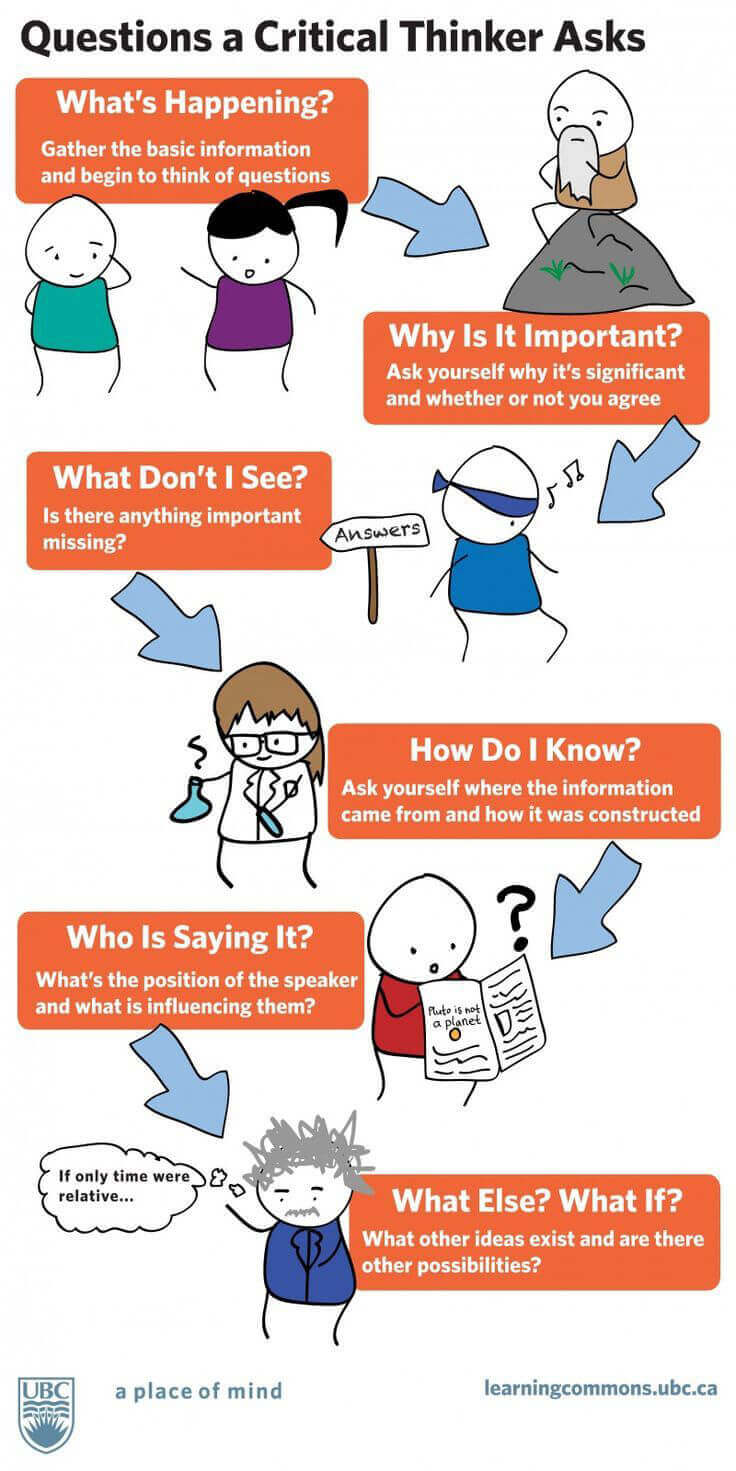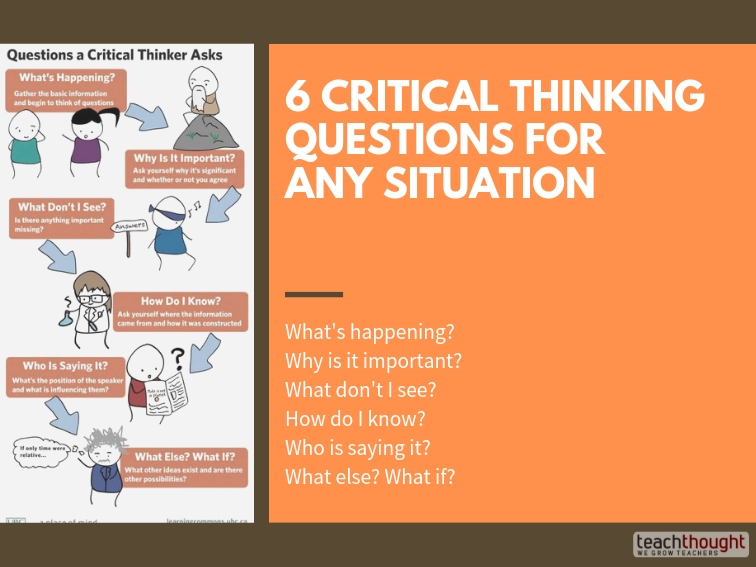What Questions Promote Critical Thinking In The Classroom?
by TeachThought Staff
While it’s true that critical thinking is a foundation rather than a brick, how you build that foundation depends on the learning process itself: exposing students to new thinking and promoting interaction with that thinking in a gradual release of responsibility approach.
The following graphic from learningcommons (the link/domain have expired) is most useful for its universal applicability via its simplicity–six basic questions that characterize critical thinking.
The questions are general enough that they can be used with almost anything–different age groups, content areas, and various learning contexts.
Whether you’re exploring math theories with a high school classroom, astronomical phenomena in a university, or a picture book in the elementary classroom, the questions can be used with few changes to promote critical thinking.
In addition to 28 Critical Thinking Question Stems For Any Content Area, the questions below might prove useful to you as you help your students better understand what ‘critical thinking’ means and how it can improve their own lives.
6 Critical Thinking Questions For Any Situation
1. What’s happening?
Establish the basics and begin forming questions.
2. Why is it important?
Ask yourself why this is or isn’t significant.
3. What am I missing?
Consider, alone or with others, if there’s any crucial information or perspective you might be missing, or that the ‘thing’ in question is missing.
See also 6 Alternatives To Bloom’s Taxonomy For Teachers
4. How do I know what I think I know?
Identify how you know what you think you know, and how that meaning was constructed.
5. Who is saying it?
Identify the ‘position’ of the ‘thing’–a speaker and their position on an issue, for example–and then consider how that position could be influencing their thinking.
See also 12 General Critical Thinking Questions About Voting And Government
6. What else? What if?
Ask, ‘What else should we consider?’ and ‘If we consider it, how will it change X or Y?”

6 Critical Thinking Questions For Any Situation; image attribution learningcommons
